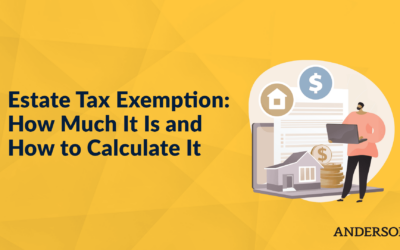Updated August 27, 2020
Probate is the process where a court oversees the distribution of property formerly belonging to a deceased individual. Unfortunately, there is nothing short and simple about probate—it’s a process you want to help your heirs avoid entirely. If you’re wondering how to avoid probate, there are several ways to do so.
7 Ways to Avoid Probate
- Establish Joint Ownership of Property
- Include Gifts a Part of Your Estate Plan
- Set Up Financial Accounts and Securities to Transfer on Death
- Set Up Property to Transfer on Death
- Create a Living Trust
- Minimize Probate by Making a Will
- Take Advantage of Small Estate Provisions
It is often a special court called a probate court that will oversee the equitable and legal distribution of property and other assets after death. This probate court will designate an appointee to make sure all debts are paid, and that what remains is transferred to the proper parties according to the beneficiaries listed in their will. In the absence of the will, assets are distributed to the next of kin according to the rules of the state. If there’s no next of kin, the property may go to the state.
What is Probate?
Probate is the process of partitioning assets formerly belonging to the deceased. As such, there are two main categories of probate: testate and intestate.
Intestate Estate
When a person dies without a will—a situation most people want to avoid—they die intestate. A deceased person’s estate might also be considered intestate if their will was not formulated according to the rules of the state, which is why it’s important to have proper legal counsel regarding the formation of your will. In this case, the probate court will appoint an administrator to receive legal claims against the estate, such as paying outstanding bills. The administrator could be a living relative of the deceased. Either way, notice must be published in a local newspaper, which helps to notify creditors who may want to make a claim against the estate, as well as family members who may wish to contest the appointment.
This administrator will then be charged with finding living relatives like spouses, children, and parents. The property of the deceased—which can include real estate, securities, and business interests—will be assessed in terms of its value by an appraiser or an independent appraiser. Once outstanding debts have been paid (which may include funeral expenses), creditors have been notified, remaining property appraised, and appropriate kin is located, the probate court will begin to partition the property according to the state’s intestate succession laws. In most states, property will be divided among a surviving spouse and/or children.
Testate Estate
If the deceased had a legal and valid will, they are said to die testate. The deceased person’s estate will be partitioned according to the directives of the will, by an executor. The custodian of the will has 30 days to take the will to probate court, so the authenticity of the will can be established as the last testament of the now-deceased. The court will then appoint an executor to execute the terms of the will.
The Internal Revenue Code can be used by the executor to determine the value of the deceased’s property, or it can be estimated according to its value at the time of death. The executor is responsible for locating all these assets for partition, even if they’re located in diverse places. Most assets will be handled by the probate court of the location where the decedent (the one who died) was living before their death, but real estate must be handled by the probate court wherever it’s located.
Once income tax returns, outstanding estate taxes, and creditor debts have been settled, the remaining assets are ready to be partitioned by the executor. Creditors will only have a certain amount of time from the date of notification to make any claims.
Why Should You Avoid Probate?
On average, the probate process can last from six months to two years. It will also cost various filing fees, publication charges, and attorney fees…and if probate drags on, these fees will continue to go up. In some states, the probate process can eat up as much as 5% of the estate’s value, or more. So, for example, a decedent who leaves behind real estate and retirement accounts adding up to $1 million might leave heirs with $50,000 or more in probate costs.
After you die, the probate process can cause your estate to be partitioned in a way that actually goes against your will—not necessarily the literal document, but the way you hope for your assets to be partitioned after death. If you want to avoid unpleasant surprises for loved ones after your eventual death, you will want to avoid or limit the probate process as much as possible. There can be fewer things more difficult than having to cope with the loss of a loved one, and then having to go through prolonged court proceedings, and possibly legal feuding, in order to partition the assets of the deceased in an equitable way.
7 Ways to Avoid Probate
Probate can be a financially and emotionally frustrating process—one that you will want to spare your heirs of having to suffer through, especially after they’ve already suffered from loss.
1. Establish Joint Ownership of Property
This is a relatively easy way to avoid the necessity for probate entirely. Jointly owned property with survivorship rights will see the property automatically pass to the surviving co-owner.
There are three main types of joint ownership:
- Joint tenancy with rights of survivorship
- Tenancy by the entireties (for married couples in some states)
- Community property (also for married couples in select states)
Jointly owned property must be properly titled according to the rules of the state.
It is important to realize that tenancy in common is not the same as joint ownership. Tenancy in common does not have rights of survivorship between joint owners. If one of the owners of real property in a tenancy in common arrangement dies, the decedent’s interest in the real property will need to be prorated before passing on to heirs. Ambiguous arrangements around survivorship rights will lead to an assumption of tenancy in common.
There are certain drawbacks to joint ownership. Owners have rights and can object to something the other party wants to do, such as sell or mortgage the property. Adding a joint owner may trigger a federal gift tax. The property can become subject creditors or claims at odds with one of the joint owners.
Real property is not the only type of property that can become jointly owned. Bank accounts, retirement accounts, and even tangible assets like boats and cars can also be under joint ownership—as long as the appropriate titles and documents are drawn. Again, making someone else a joint owner does carry certain risks. For example, in the case of a bank account, the other owner will be able to withdraw money at will.
2. Include Gifts a Part of Your Estate Plan
You can gift property as part of an estate plan to parcel out your assets before death. This does not have to happen on your deathbed; it can be set up at any time. For example, when you retire, you can begin to partition assets to relatives and charitable organizations. Some people might feel reluctant to leverage this strategy because they feel it sends morbid signals about their impending death, but that doesn’t necessarily have to be the case. Plenty of people—among them global movers and shakers like Bill Gates and Warren Buffet—have already created charitable foundations with their assets, decades ago. It’s a safe bet they plan on doing business for decades to come. Creating these gifts can help avoid these assets from getting entangled in the probate process.
3. Set Up Financial Accounts and Securities to Transfer on Death
Most banks will be able to provide you with paperwork to designate someone as the beneficiary of your account in the event of death. This is applicable for both cash accounts and equity accounts, like an IRA. While you can designate multiple beneficiaries, you cannot create a chain of succession (for example, leaving behind accounts to A, but if A dies, then they go to B, and so on). For people who are concerned about the drawbacks of allowing someone else to be a joint owner on their account, this POD (pay on death) designation is a great alternative, because the beneficiary has no rights to make use of the equities until after your death.
Regarding non-cash equity accounts (such as the aforementioned IRA), you can also designate someone to be the beneficiary of a transfer-on-death (TOD). This will help avoid the necessity of having to liquidate the stocks, bonds, or other securities in the portfolio in order to pay them out. The designee will get to enjoy the rights associated with the equity account without having to liquidate it since it will just transfer over to them in the event of your death.
4. Set Up Property to Transfer on Death
In addition to bank accounts and brokerage accounts, you can also designate property to transfer on death. You will need to record a special deed, and this is only available in the following states: Alaska, Arizona, Arkansas, Colorado, Hawaii, Illinois, Indiana, Kansas, Minnesota, Missouri, Montana, Nebraska, Nevada, New Mexico, North Dakota, Ohio, Oklahoma, Oregon, South Dakota, Virginia, Washington, West Virginia, Wisconsin and Wyoming—and Washington D.C.
Since your house is often going to be your largest asset, you want to protect it from becoming the subject of legal battles or being sold off in the probate process to settle debts. Setting up a TOD for your real property will be especially important if it’s a source of income (like rental properties) or a family residence with a long history, which you’d like to keep as a generational estate.
5. Create a Living Trust
If you’re wondering what is a living trust, it’s something your heirs (and even you) can benefit from if your estate is particularly large and/or there are many potential beneficiaries. A living trust is often called a revocable living trust—meaning, you can revoke it and/or make changes. A revocable trust also allows you to keep assets in your estate.
If, however, you are amenable to parting with some of your assets while still alive, you can create a much stronger irrevocable trust. Irrevocable trusts secure your assets against creditors or lawsuits, avoids capital gains taxes and estate taxes, and keeps protects your assets from the collections department of a nursing home. You can also claim a tax deduction for a charitable gift by placing assets within an irrevocable charitable trust.
Keep in mind that an irrevocable trust is just that—irrevocable. If you want personal control of your assets during your lifetime, an irrevocable trust may not be for you. Also, keep in mind that the independent trustee you appoint to manage the irrevocable trust becomes the true decision-maker, so it’s important to appoint someone you know and trust (no pun intended). The attorney-client relationship is always important when obtaining legal advice to protect your real property and liquid assets, but when selecting a law firm to handle estate planning—since they will be executing your estate after death—you will especially need it to be someone you trust.
That said, a revocable trust may be sufficient for your goals to avoid probate. You remain the trustee of the trust and execute a legal document creating a living trust as a separate entity. On death, a previously appointed successor trustee will help make sure the property is transferred to your intended beneficiaries, a transfer that will help your heirs avoid probate.
Trusts are also great for people who are concerned they will become too incapacitated—due to age or a decline in mental health—to make sure their assets are managed and transferred in an equitable way. While the cost of creating trust is significantly more than that of drafting a will, it becomes a sound, money-saving investment when it helps to prevent probate.
6. Minimize Probate by Making a Will
A whopping 50% of Americans over the age of 55 do not have a will. You can minimize the potential damage of probate and save your heirs from lengthy, drawn-out court battles by creating a will.
The procedures for creating a will vary from state to state, but there are a few standard components. You will need to be of sound mind. The will must be captured in writing. You must sign the will in the presence of two witnesses (though they often don’t need to hear you read it), who in turn will also sign the will. In states that accept a holographic will—which is entirely handwritten and signed by the testator—these witnesses are not necessary.
You won’t need to get your will notarized in most states, but if you and the witnesses sign a sworn affidavit in front of a notary public, it will speed up the process of validating the authenticity of your will after death.
Your will can clearly spell out the process for partitioning your estate after death. You can appoint guardians for your minor children. You can also disinherit particular individuals who you do not want to share in your estate, precluding them from taking your assets from those beneficiaries you do want to benefit. Rather than leaving the outcome of this process up in the air, creating a last will and testament will help you minimize the potential damages of probate.
7. Take Advantage of Small Estate Provisions
By gifting away property and/or creating a trust, you can create an estate that falls beneath your state’s threshold for a simplified probate procedure. As it is, your estate may already qualify, so you should check to see what those thresholds are in your state. This simplified probate can also apply to specific types of property after your death, or if you leave your entire set of assets to a surviving spouse. Of course, it is far better to set up more proactive mechanisms for avoiding probate (like a trust or a will).
If your estate qualifies to go through a limited probate proceeding, your heirs will most likely need to file a small estate affidavit, which involves recording assets and other pertinent information relating to your death. This may be difficult for them, especially since they may already have to engage in that process of rehashing information about your demise for various other issues like life insurance. Your heirs will also have to obtain a death certificate, file the affidavit, and wait.
Even though a small estate provision can help your estate avoid being subjected to probate laws, the requirements in many states do not make this a feasible vehicle. For example, California probate laws set the value of the estate at a little less than $170,000—which is remarkable because the median home value in California is almost twice that at close to $400,000. Property values and thresholds for the small estate provision vary from state to state, so you might still want to check and see what they are where you live.
This means that small estate provisions will not work for most estates unless a person dies with less than $170,000 in assets…for example, they rent an apartment and have a six-figure retirement account, and perhaps some other possessions. There is nothing wrong with this scenario at all from a moral standpoint—it just means that small estate provisions are an ineffective loophole today, and perhaps the biggest benefactor is actually the probate court, which can avoid the time and expense of dealing with a small estate.
How to Avoid Probate
Death is an area fraught with emotional complications and financial confusion. Since the whole affair is so emotionally triggering and unpleasant, people tend to avoid considering how best to plan for the partitioning of their assets in the event of their eventual demise. Unfortunately, a lack of planning in this area might leave your heirs having to deal with the probate process.
Remember that if you have no surviving kin, the probate process will eventually turn over your assets to the state. While you certainly may be interested in doing your civic duties by voting and serving on a jury, you probably have other non-profit causes you’d like to see your assets given to, in the event you don’t have heirs.
To that end, it’s a good idea to get an estate lawyer involved in setting up mechanisms to avoid probate or at least limit the damage it can cause. Estate planning mistakes are easy to make, especially since there are so many legal issues to navigate. Debts, claims, and assets can all be lined up on paper, and are confusing enough—but the way that heirs might act to get at desired assets after your death is totally unpredictable, which can draw out the probate process and cause everyone untold anguish.
If you’re wondering how to avoid probate, the answer is getting a probate attorney who is familiar with probate laws and estate planning. Anderson Advisors can help you navigate ways to avoid the damages of probate as much as possible. As they say, only two things in life are certain: death and taxes. Competent legal counsel can help you minimize the damages of both.
Bonus Video
Free Strategy Session with an Anderson Advisor
Receive a detailed risk assessment to assist in lowering problem areas that could wipe out all of your assets with one wrong move. Speak with an Anderson Professional Advisor to get your FREE Strategy Session.
Limited-Time Offer: ($750 value.)














